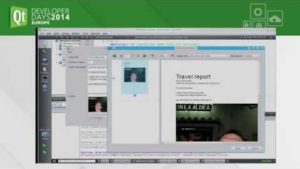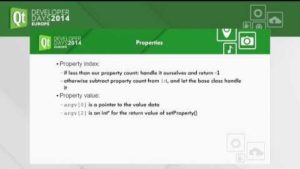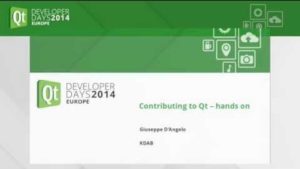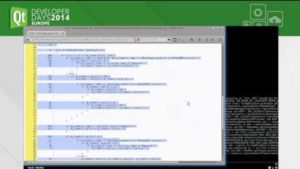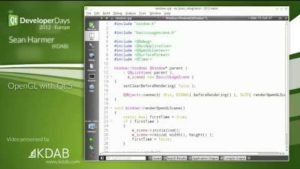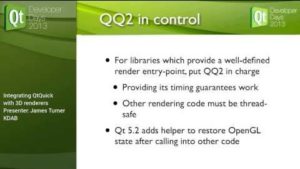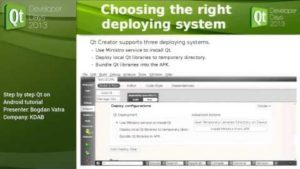KDAB Blogs Get the RSS Feed
Stay up-to-date and get inspiration from KDAB’s expert insights into Qt, C++ and OpenGL development.
Our engineers and designers share cutting-edge technology news and ideas with regard to Qt, QML, Qt on Android, OpenGL, Qt 3D, Vulkan, Scalable UIs and more embedded, mobile and desktop-related topics.
DIY moc – Dynamic Meta Objects
Abstract: Moc’s job is two-fold: it generates the qt_metacall() member function that dispatches incoming calls to slots and implements reading and writing of properties, and it generates the QMetaObject containing information about what signals, slots and properties are available, providing runtime introspection capabilities. All of this is fixed at compile time though, a limitation that […]
Contributing to Qt — hands on
Abstract: With the launch of the Qt Project in 2011 it has been made possible for everyone, individual or organization, to directly submit patches to the Qt codebase. Whether it’s a small fix to the documentation, an improvement to existing code, or even a brand new module altogether, the procedure is the same. The presentation […]
From QtWidgets Legacy to QtQuick and beyond
Abstract: It is easier and easier to create a proper QtQuick application from scratch. But is it really that simple to bring existing code in the QtQuick structure? It can get especially challenging for a large project which collected C++ collected over more than 15 years. What can we do of all that code? Temptation […]
OpenGL with Qt 5
Abstract: Qt5 introduces better support for OpenGL from the QPA/Lighthouse abstraction, through a new set of OpenGL classes up to QtQuick 2 and Qt3D. OpenGL is also very often used for games and as the central content widget in desktop applications. With the advent of QtQuick 2 it is now easy to write entire user […]
Modern Shader-based OpenGL Techniques
Abstract: Modern OpenGL abandons the old fixed-function pipeline in exchange for a programmable pipeline using shaders and buffer objects. This offers much more flexibility to developers and opens the door to a huge range of effects and techniques whilst at the same time making available huge performance improvements. This presentation will teach you about the […]
Integrating QtQuick 2 with 3D renderers
Abstract: “QtQuick in Qt5 uses OpenGL to deliver fluid, performant visuals, and an internal scene-graph structure to permit threaded rendering, decoupling the main application thread from interacting directly with the graphics driver. For developers work with an existing rendering or visualisation technology, this presents both an opportunity but also problems; QtQuick offers a compelling, modern […]
Running QtQuick Applications on the Web
QML is the language that makes writing Qt application UIs easier than ever before. QmlWeb now brings this ease to the web. Traditionally desktop applications were written in languages like C or C++. Web technologies like HTML and PHP were mainly used to write static websites. With the rise of modern web applications and technologies […]
Improving the speed of C++ applications Fast code matters - Milian Wolff
Qt on Android Tutorial Step by step video tutorial
Qt on Android Tutorial (please adjust volume / low sound): Abstract: The tutorial will start with instructions on how to setup the development environment, how to configure QtCreator and ensuring that all dependencies are met. It will then continue with a live demonstration on creating an app, deploying it to an Android device and […]
